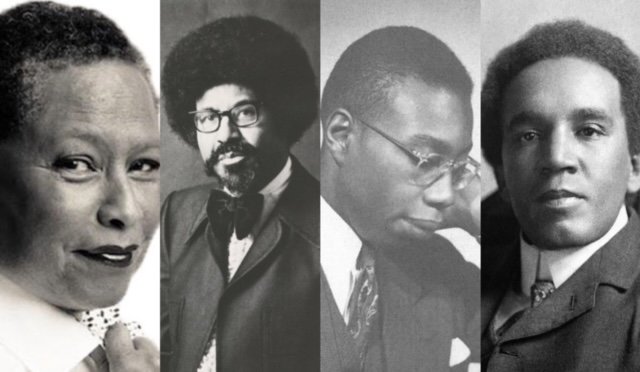Dillon Scott (center) won third place at the 2023 Sphinx Competition Senior Division.
Dillon Scott is from Lansdale, Pennsylvania. He attended North Penn High School and is a Project 440 alum who also performed with the Philadelphia Youth Orchestra and was the principal viola in his senior year of high school. He is currently studying viola with Roberto Díaz and Edward Gazouleas at the Curtis Institute of Music. Dillon loves reading and watching documentaries, specifically about sociology and science fiction. He says, “I like to go on walks and participate in meditative activities when I need to get some new perspectives.”
Dillon recently spoke with Project 440 about the Chamber Music of Black Composers, a program that he proposed, researched, and curated. Dillon and an ensemble of 15 Curtis musicians will perform the program on December 6 at the Curtis Institute of Music and December 9 at All Hallows Church in Wyncote. The program includes:
David Baker, Roots II Piano Trio
George Walker, String Quartet No. 1
Samuel Coleridge Taylor, Clarinet Quintet in F-Sharp Minor, op.10
Eleanor Alberga, String Quartet No.2
Researching the Composers and About the Program
I spent many weeks in the Curtis Library and Archive researching as many composers and pieces as I could. I took notes and tried to find as many music scores as I could. I also spent a lot of time online looking for commercial recordings of each piece to hear as many references as I could. I researched between 20-30 composers and about 50-60 works. In all, it took around six months to decide on the program.
Each of the four composers I selected was influenced by the different environments they were surrounded by during their lifetime. Eleanor Alberga is Jamaican, and she spent much of her career as an improviser; Samuel Coleridge-Taylor is English and was alive during the high of the romantic tradition; George Walker was American and was very influenced by the modernist and academic musical movements of the 20th century, and David Baker, who was also American was prominent in the world of jazz.
I selected the music due to its instrumental contrast. After I decided on the two quartets, I wanted to include other instrumental disciplines to bring the school together symbolically and so I chose to add the piano trio and the clarinet quintet.
Each piece offers a contrast to the others, creating a nicely balanced program. The Coleridge-Taylor is the lightest and most similar to other European pieces in the canon, the Baker has the most symbolic meaning when relating to African American idioms, and the Alberga is a brilliant, more abstract piece that evokes dance and rhythm unlike any of the others. Finally, the Walker is a wonderful mid-century piece that fuses all of the artistic movements that had converged in the early decades of the 20th century, namely, modernism, impressionism, romanticism, and neoclassicism.
My Vision for Chamber Music of Black Composers
Dillon shared why he wanted to create Chamber Music of Black Composers.
Countless black voices throughout the centuries have contributed to this art form and have gone unnoticed for too long. In recent years, however, there has been more of a push to rediscover and celebrate this music that has been in the shadows since its conception. I figured that in light of recent developments within the industry and the world at large, it was time Curtis did something to take part in this new renaissance, as I believe this is the way of the future.
These works are becoming more commonly played, so I want to create an opportunity for students to become familiar with them so they can call upon this experience later in life. I want to expose the works to the faculty as well so that when they coach the pieces, they are also taking part in this process and could be inspired to play them as well.
My wish is for these performances to be posted online for anyone to see them. Since Curtis is a flagship institution, I see it only fitting that Curtis pioneers the championing of these works, which will inevitably signal to other organizations to do the same.
I want this event to bring the community together and bring Curtis to certain people who otherwise may not be inclined to come to our performances. Lastly, I want to inspire people to strive for the things they believe in, no matter how large or small they may be.
Connecting with the Community
I was hoping that Chamber Music of Black Composers would succeed, but I was unaware of how much excitement would surround it as the project has gained momentum. From students at school to administrators, to other arts organizations, to employees at Target, this project is bringing the community together and raising awareness about this music to magnitudes I could only have dreamed of. I also was not expecting it to end up being as involved as I ended up becoming, but I do not regret a single moment I spent along the way because it allowed me to grow and learn and pursue this vision to the greatest extent that I could.
Where to hear Chamber Music of Black Composers
Performances will be given at Carver High School and The Philadelphia High School for Girls. The General Public can reserve free tickets for performances on December 6 at Curtis and December 9 at All Hallows Episcopal Church.



